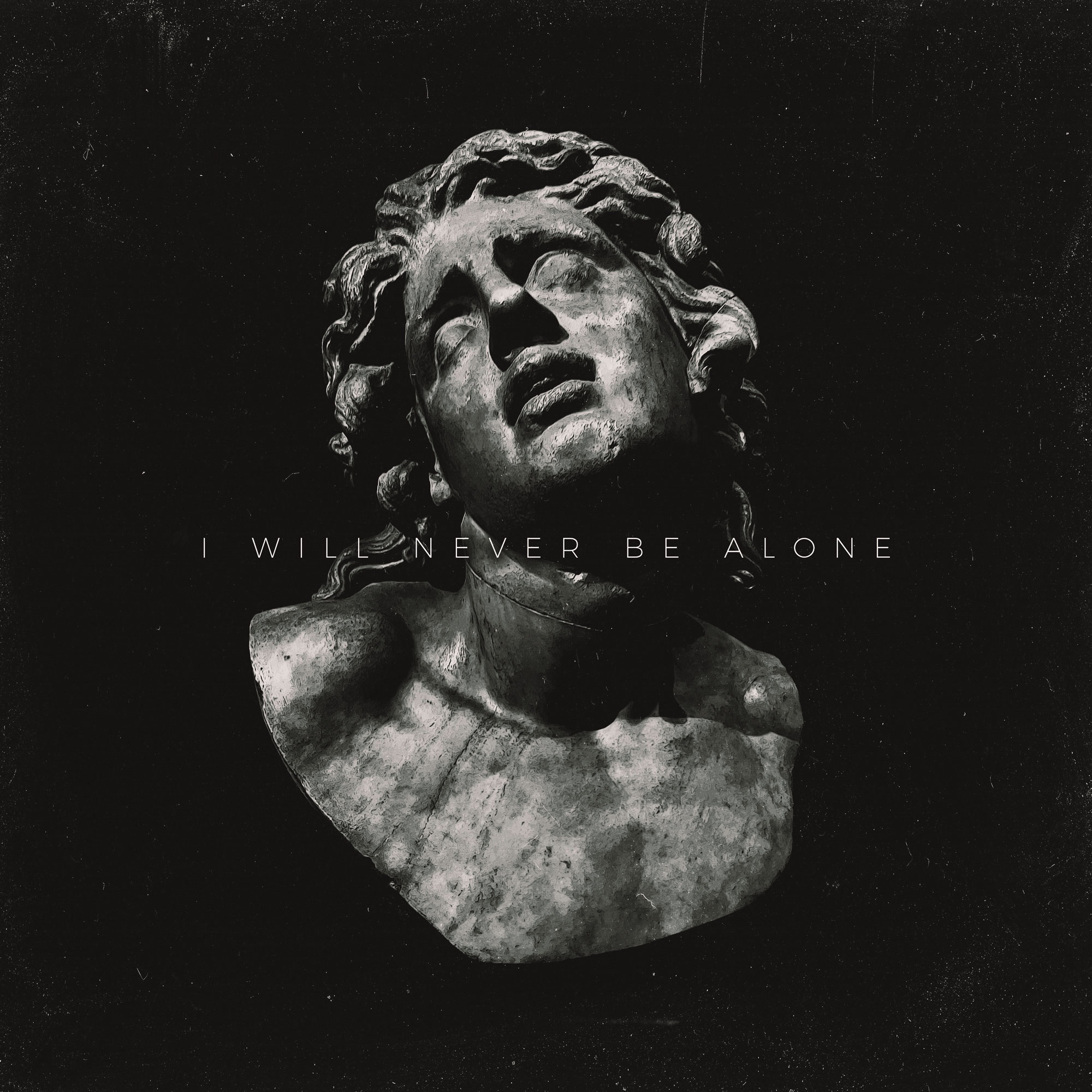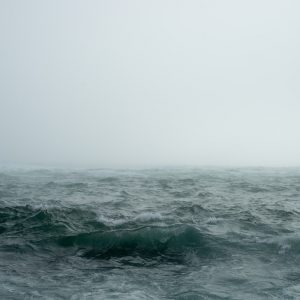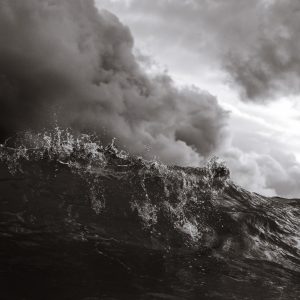I spend the entire flight from Oakland to Florence telling myself I am safe. Every time I get up to use the bathroom, I expect to see my husband in one of the seats, or in the mirror behind me. I half expect to find him waiting for me at the arrival gate, or at the end of the immigration checkpoint. It is only when I see my grandma Lita standing in the baggage area that I finally begin to feel safe.
“Come, Teresa, come.” Her arms envelop me in a stronger embrace than I expected from Lita, a slender woman of almost eighty years. “You are with me now. With family.”
When she releases me, her fingers find the collar of my navy blue button-up, which I have turned up to cover my neck. Peeling it down, she peers at the bruises there.
“They’re almost gone,” I say under my breath.
“You’re a resilient young woman.” Lita releases the fabric. “Does your husband know you’ve come?”
“No. I don’t think so. I was careful, I did everything you told me.”
“Good. Seems we were both wrong about him.”
I can’t tell whether I’m supposed to laugh. Grandma is stone-faced when I meet her eyes again.
“My driver is circling—come.”
*
I fought the ocean once when I was twelve.
I still had a family then: mom, always real with her feelings and her thoughts, no matter how blunt or angry or sweet—dad, not always kind, but always calm. It was just the three of us, but there was always trust, and I was safe and never alone. We lived in a small house near the coast, outside Mendocino. Those days, I swam in the sea every chance I got.
Masked by a dense fog layer, a set of sneaker waves heaved the ocean into chaos one day, and I had no choice but to fight. When you fight the ocean, there is a moment where all sense of certainty goes away. Before, there was no question that you would be alive in the next moment. But you lose that, just like you lose track of up, and the water pummels you and squeezes your chest until either you find your way out, or you give in to the churning waves, the froth and foam, the endless weight. When you fight the water, you’re not trying to win. You’re only trying not to lose.
I did not lose that day, but really I did lose, because less than ten yards away, my mom and dad were fighting the ocean, too.
When they died, my dad’s sister allowed me to live under her roof. But she never considered me a niece—rather a ward and a burden—so I don’t consider her family, and I don’t call her my aunt. Like everyone in my extended family, she never forgave my “pure” Tuscan father for inviting a Colombian woman into his home and ruining his branch of the previous bloodline. My grandma Lita in particular, was furious with him—enough to legally disown him back in Italy—but I guess that was a long time ago. People change.
Lita changed enough to support my marriage to Carlo when no one else did—surprising us with money for a small ceremony and even a tiny honeymoon. I don’t know where the change of heart came from, but she has become the closest thing to family I have had since losing my parents. I had forgotten what it felt like to trust someone. Then, Lita surprised us again with a wedding ring, giving it to Carlo to give to me: a ruby, one whole carat, flanked by a pair of black onyx stones, is set in a tungsten band, engraved with an ancient horned god. The ring is by far the single most expensive thing I have ever owned.
*
I’m technically still married to Carlo, but I’ve taken the ring off my finger and wear it on a chain around my neck. I’m going to give it back to grandma Lita, who rides in the passenger seat while her driver steers her BMW through the rolling hills with the steadiness of a bird gliding over water. Her hands folded in her lap, Lita glances back at me. I expect her to smile but find her stone-faced as she blinks away.
She lets me take in this landscape of forests, tree orchards, and vineyards, dotted with vine-covered homes that appear stolen out of history. Soon we turn onto a road flanked by two marble pillars and lined with slender cypress trees, leading to a monstrous estate house, sunbaked limestone walls glowing with golden light, crowned with flowering vines under a red tile roof.
Her driver helps her out of the car, then opens my door. Lavender scent washes over me like a spritz of cool water.
“Welcome to my home.”
“Grandma, I don’t know what to say. Thank you.”
“Oh, non eniente. It’s nothing. Come.”
“It’s everything. The advice, the plane ticket, even the taxi to the Oakland airport.”
“Pha.” Flecks of spittle fly from her mouth. “It’s good we got you out of there. Now, come. It’s hot.”
“Wait.” Removing the ring and chain from around my neck, I pass them to her. “I want to give this back to you.”
Lita reaches for it, but recoils from the ring, instead hooking the chain with a pinky. Wearing a frown, she blinks at it for a moment, then says, “Cara mia, this was a gift.” Then she gathers my hand in hers, dry skin dragging over my knuckles, and lays the ring in my palm, closing my fingers over it. “You are part of my family. Wear it with pride. Anyway, you are still married before God. Now, come.”
Sliding the ring onto my right forefinger, I follow her inside, passing a door handle that looks just like the mask that started appearing on my husband’s face the night of our honeymoon.
*
Our honeymoon was an overnight visit to the coast. We walked along the cliffs overlooking the churning sea to one side, and the dense green forest to the other. Carlo asked if I wanted to get closer to the water, but I quickly changed the subject.
“Grandma gave us money for dinner, too.”
Pushing his black hair from his face, he lifted an eyebrow and asked, “Is there enough for drinks?”
After three beers with dinner and a whiskey after, Carlo was squeezing my hands under the table, whispering to meet him in the restaurant bathroom. His urgency thrilled me, and I paid with two of my grandma’s hundred-dollar bills and drove us to the hotel.
Dusky light faded from the sky and made everything soft and shadowy. Carlo joked about how badly he had fumbled with my grandmother’s ring in our ceremony. When I glanced over to laugh with him, he was wearing a mask with a long, beaked nose, thin, pressed lips, and forward-pointing horns.
“Take that off. What the fuck?” I looked ahead at the road.
“What?”
“That mask. It’s creepy, I don’t like—” but when I looked at him again, it was gone. “Where did you put it?”
Carlo didn’t answer for a moment, just looked at me. “What… Are you making some kind of joke?”
I pulled the car over and made him get out. “Show me your hands. Lift up your sweatshirt,” I said, but there was nothing.
“What was that, Tessa?”
“I’m sorry. It must have been the light, shadows, something. I promise you didn’t marry a crazy woman.”
But when I hear the high, manic sound of the laugh I force out, I’m not sure I believe myself.
*
“Why do you seem so distraught?”
At supper in grandma Lita’s candlelit dining hall, we sit at opposite ends of a table made from a single piece of marble, steaming bowls of pasta, and red wine the color of blood before us. It is nearly 9 pm, yet bold light still pours through the open courtyard doors.
“I’m not,” I reply.
“Don’t lie to me, child. I saw right through your father every time he told a fib. He was a beautiful boy. You’re like him, you know.” A trace of a smile appears at the corner of Lita’s mouth.
“Like dad? He always said I was like mom.”
Her smile vanishes. She forks her pasta in silence.
What did I say? I want to ask what I did wrong, but her stony expression scares me a little.
Instead, I say, “Grandma? What is the—” I swallow a lump— “the face on your door knocker?”
She frowns. “Why? Does it bother you?”
I wish I could tell her—but how can I? If I tell her about the mask, she’ll think I’m insane. Maybe I am. “It… creeps me out.”
“Pha.” Sipping her wine, Lita peers down her nose at me. After savoring her sip, she says, “You’re a big girl, Teresa. A resilient young woman.” She stabs at her pasta again. “Anyway, it’s time you learn about Italy—the real Italy—through its art. Tomorrow morning, your education starts. After, we can lunch together, if you like.”
We exchange a smile, and I take some pasta. I wish I could tell her about the mask, ask her about my father, learn more about our family—but this feeling of being at home, and of being safe is such a warm relief; I am happy to finish our meal and put Carlo’s mask and that terrible door knocker out of my mind and to think of something other than the night he attacked me.
*
Our lives were strained only three months into our marriage. Oakland was too expensive for us, and with a looming rent hike, the stress was like a bad roommate.
I figured his anger was normal—but Carlo started getting scary. One night, I was going to meet a girlfriend at Mo’s Diner, when Carlo knocked on the bathroom door.
“I gotta go to work, babe. Need the pisser, please.”
His head swiveled toward me as I exited. “Why are you getting all dolled up? I thought you were just going to Mo’s.”
“Dolled up?” Laughing, I waved him off as I passed him. “I wear this all the time.”
I yelped from the shock of him grabbing my arm. He squeezed it hard and shook me.
“You’re hurting me.” I staggered back from him and tried to peel his hand off my arm. He hurled me down to the dingy carpet. An unfamiliar scent of musk and sweat filled my nose as he passed me and entered the bathroom. When I looked up, I could see him in the mirror, and though I didn’t want to believe myself, I knew what I saw: Carlo’s face transformed into the mask I’d seen on our honeymoon—beaked nose straight as a blade, forward-facing horns. I threw open the door just as he was undoing his pants to pee.
“What the fuck, Tessa?”
It was just Carlo again.
Then, last month, Carlo and I were facing eviction. We decided that Carlo would drop me off at my aunt’s place and that he would go and crash with a friend. Eventually, we would move back in together—that was our promise. Sometime in the wee hours, I awoke to Carlo babbling in what sounded like an ancient language. When my eyes adjusted, I found him sitting straight up in bed, his body a perfect ‘L’ shape.
“Carlo?” By the dim light bleeding in from the street, I could just make out what I was afraid of, the outline of the horned mask. “No, no.” I pushed away from him, backstroking with my hands and feet, trying to slip away. But Carlo, still chanting, hooked my ankle and wrist, and dragged me toward him.
I tried wrenching my wrist away. But Carlo held fast and, staring at me through the mask, gained his feet, pulling me up until I was kneeling in front of him. A musk and sweat smell suddenly choked me. I screamed, struggled—but Carlo would not let go. My scream became a growl, and I reached for his face, clawing at the mask—but it was like scratching stone, and I recoiled in pain.
Then, he released my wrist. But in the same instant, I saw a white flash as his hands clamped hard around my throat, and when I reached for them, they, too, were like stone. I tried to suck air through his grasp, but I was fighting the ocean again: white noise in my ears, vice grip on my chest, twisting, twisting in the water, upside down with no way out.
But I fought then, and I would fight now. Still kneeling, I summoned all my strength and blindly thrust my fist toward his groin. It connected. His hands falling away, Carlo collapsed, moaning onto the bed. Lightheaded and breathless, I staggered toward the door. Certain that he would chase me, I glanced behind me, but Carlo still lay on the bed, vomiting over the side of the mattress, his mask gone.
*
Morning breaks at Lita’s place. It grows hot even before the sun is high enough to be seen over the trees. Thin, high clouds give the world a washed-out look like old photographs. Grandma and I have a cappuccino and croissant in her massive kitchen. As we leave, I fixate on the door knocker for a moment. It is the mask: hooked nose; thin, pressed lips; horns protruding forward, and an expression of quiet rage.
“Teresa.” Lita is impatient this morning.
Her driver takes us to a museum of sacred art and drops me off.
“The art and culture of Italy through the ages is a vast sea. But you have to start somewhere.”
“Where should I start?”
Grandma Lita takes a deep breath in and starts rolling up her window. “Why not start at the beginning?”
“And we’ll get together after, like you said?”
“It’s 9 AM now—they should just be opening.” Her window closes, and the car glides away.
The museum includes a newer wing with contemporary local art, as well as medieval and renaissance pieces. In an older wing, built from a small wooden farmhouse, I find ancient Roman artifacts almost 2,000 years old.
How can anything human-made be that old?
And yet the next section claims its pieces are even older. “Relics of the Etruscii” is printed on a banner above a section with bits of stone, shards of earthenware jars, wooden beams from a ship—dating from 600, 800, 1,000 BC. I stand there trying to imagine this country, this place my father’s family lived, so long ago.
The best-preserved piece is from a sarcophagus. On a block of stone is painted a scene showing two people lying dead, a third person on her knees, and a fourth figure clasping his hands around the throat of the kneeling woman. This last figure is human-like, but with a grotesque face. I peer at his features, inching closer, my finger idly tracing my wedding ring. The figure is faded in parts, but the face is clear, unmistakable—the same as Carlo’s mask, the same, I realize, as the door knocker at Lita’s estate. Fear grips me, and I want to turn away. But when I blink, the figure’s eyes have suddenly fixed on my own. Against my own will, I inch closer.
My breath grows shallow, a weight pressing in on my chest and throat, darkness crowding the edge of my vision. Closer and closer—the horned figure draws me in until I am less than a foot from the stone. A sickening and familiar odor wafts over me—heavy musk, acrid sweat. The pressure on my neck and chest grows, and my throat constricts. I am underwater again. My breath grows tiny, my heart races and slams my chest. My head grows light, and the sound of rushing water fills my ears——
“Signorina.”
Heaving for breath, I topple sideways, catching myself on the linoleum. I look around, bewildered, slowly taking in the museum. Did I faint?
“Signorina, cosa succede?!”
A museum attendant hovers over me, stammering and touching my shoulder with a trembling hand. He has the baby-stubble of a high school boy not much younger than me. I allow him to help me up, my breath slowly coming back, but a cold dread washes over me when I look at him again—his eyes are fixed on my neck, and when I touch a finger to it, the skin is tender to the touch and feels freshly bruised. The attendant meets my gaze, his mouth moving, but no words come out.
Timidly I peer past the attendant at the sarcophagus. The creature is there, but he no longer looks at me. “Who is that?” I ask, aiming a quivering finger at the figure.
“Chi e?” The attendant, slender and well-dressed, tears himself away from worrying about me and steps closer to the painted stone of the sarcophagus, adjusting his glasses. “Em, questo e Etruscii.”
“Do you speak any English by chance?”
“English? Ma no. Un poco poco.”
Swallowing, embracing myself so my arm partially covers my neck, I say, “I know it’s Etruscan, but who is that?”
“Lei? Eh, ma no, I no know this one.”
I pull my phone from my pocket. In it, I catch my reflection and see bruises on either side of my neck. They are identical to the ones Carlo gave me. My breath trembles as it tumbles out of me.
I flick the screen on and start googling ‘Etruscii monster’ but the attendant says, “Eh, miscusi signorina, il museo è chiuso adesso.”
“Huh?” I shake my head at him, still holding my phone. “Museo…?”
“Chiuso. Close-ed.”
“Closed? But I just got here.” I look at my phone again. The time is 2:34 pm.
*
“Where is my grandma?”
Grandma Lita’s driver flits his eyes up to meet mine in the rearview mirror. I have buttoned my shirt as high as it will go and pulled the collar up to conceal the blue-brown marks so that I am all covered up like a puritan. Encircling my knees with my arms, I look away when he looks at me.
“Donna Velatri say to pick you up from the museo. She say to drive you to the house.”
“We were supposed to get together. Is she coming back later?” The driver makes a little noise, but I don’t know if it means yes or no.
I meet my own gaze in the mirror, my eyes red and puffy. I slide to the other side of the back seat, so he won’t see me crying. We say nothing to each other for the rest of the drive.
For all its elegance, Lita’s estate house is cavernous and dimly lit even in the daytime. The narrow window in my bedchamber allows little sunlight in, and with Lita away, the place is lonely and feels like a large, well-decorated tomb. What is happening to me? What gave me these marks? How will I explain this to Lita? The mask, the figure, the attack—I’m at my limit. I can’t stay in my room. I feel trapped and alone, and I need air, space, wind on my face.
Thin, high cloud cover has thickened into a layer of marbled fleece. Yet somehow, it is even hotter when I exit the estate house and pass into an overgrown vineyard buzzing with flies. Below, several acres of weedy, inactive farmland sprawl down a slope toward a forested area. An intense thirst seizes my mouth and throat, and I realize that I have had almost no water today. In the oppressive heat, the forest looks inviting, so I move toward it.
Lush green is everywhere. A little footpath leads under a thick canopy, and the cooler air I find there is a relief. The earth is soft underfoot. Scents of pine and citrus hover in the air, and I lean my head back to take them in, unbuttoning my shirt as I do. Coolness and softness and vibrant green start to dissolve my earlier terror.
The sound of running water sharpens my thirst. I follow the sound to a clearing, where water gushes from a stone and marble fountain into a wide basin. I freeze when I see four faces carved into each side of the fountain and, circling, examine them in turn from a distance. But it is only four old men’s faces, with inscriptions in an ancient language. Relieved, I step forward, eager with my whole body for the water, eager to drink, to cool down, to splash it over my flushed face and bruised neck and swollen eyes.
My skin comes alive when the water splashes over it, and the cool water in my mouth and throat sends waves of pleasure through me. I brace myself on the rim of the basin and swallow long pulls of water. I let it run over my wrists and gather pools of it in my palms, bringing the water to my brow, splashing it over me, drenching my shirt. I hear myself release a high, little laugh.
After my next drink, I lean past the spout to run the water over the back of my neck. It shocks and delights, and I draw a sharp breath. As my face comes close to the surface, something inside the basin undulates with the flowing water, and I realize too late that it is the face of the figure from the sarcophagus, carved into a submerged panel. He fixes my gaze and draws me into him without warning.
Plunging my hands into the water, I brace against the pull. I steal a breath as I am drawn toward the dark, shimmering mask like a tide to the shore.
“Who are you?”
“Come. I am Charun. Come.”
“Why are you doing this to me?” My mouth breaches the surface of the water. A pair of hands seize my neck. My face submerges.
Under the water, blurred and shadowy, I see my husband’s mask—the horns aiming at me, the lips pressed into a thin line, and muttering the same words that Carlo spoke the night he choked me. I buck against the mask, the hands, the stone—but soon, my heart beats in my throat, and a washing sound fills my ears.
—maybe my father and mother wait for me. If I let go, I will find out. So easy. Maybe I will see them again.
But… what if it doesn’t work that way?
“Let me go,” I say under the water, running out of oxygen, darkness crowding my vision.
“Teresa was promised.”
My lungs fight to pull in air. Little seizures rack my chest. I resist breathing the water in—I fight.
I promised you nothing.
With the last of my air, I scream “No,” into the water. Charun pulls me deeper as I unclench my hands from the bottom of the basin. I grope his stone face until I reach the eyes glinting faintly in the murky water. Then I plunge my thumbs in as far as they will go. Charun’s stone hands slacken, and I stagger backward, pulling away from the fountain. Gasping, I gulp air into my lungs, hacking up water onto the soft earth underneath me.
Craning my head, I open my eyes to an overcast night sky, lacy black treetops against the slate cotton fabric. I shake my head. Getting my feet under me, I wobble away from the fountain—though in the dark, I have no clue which way to go.
*
For close to an hour, I wander by the weak light of my cell phone flashlight, feeling a great weight lift off my chest when I find the fallow farmland and overgrown road leading up to the estate house. I am desperate to reach Lita. She is the only person in the world I can trust, and even if she can’t help, at least she can tell me if I’m going insane.
Tears are spilling down my cheeks when I reach the estate house. My chest racks with sobs when I enter Lita’s bedroom, where she sits at a vanity mirror.
“Grandma.”
Her back to me, Grandma Lita lifts her head. “Come, come. Close the door.” She rises and turns to me.
“I’m sorry. I don’t understand what’s happening to me.”
“Shh.” She picks up a throw blanket from the back of the chair and enfolds me in it. I lose it, and I tell her everything that happened with Carlo—seeing his mask, hearing him chant.
With a patient sigh, Lita pats my back. “You can forget all about Carlo, now. We were both wrong about him.”
“I came out here to get away from it, but… it keeps happening. Am I..?”
“You are not going mad, Teresa. It is good that you have come.”
I frown, still enveloped by her. “You don’t understand. It keeps happening. At the museum. And then at the fountain.” I stop short of telling her about Charun—I need to know if I’m even sane in the first place. “These marks on my neck—are they real?”
Pulling back a little, Lita examines me. Swallowing a stone, I show her my neck.
“Yes, they are real.”
I’m not insane. I breathe a little easier. Wiping my eyes, I decide to trust her. “Something—someone—is attacking me. A man, or a monster. He finds me anytime I see his face. At home, I thought it was Carlo, but then I came here, and it happened at the museum, and Grandma, when I saw the face on the…”
Grandma Lita shows no emotion as I speak.
“I’m not lying, Grandma.”
“I know, Teresa.”
“Then—”
“I went through it, too.”
She knows. Relief floods over me. But something stops my breath. “Wait, you know about him?”
“About Charun, yes.”
“Why—” I swallow a new lump in my throat. “—wouldn’t you tell me about him?”
“Pha.” She pulls me back into her embrace. “You are a resilient young woman.” I try to relax, but Lita’s bony arms suddenly feel rigid—this feels less like an embrace, and more like a cage.
“Grandma. Let me go, please.
Her hands curl, the fingertips dragging across my skin and her nails scraping the back of my neck. “Ours is an ancient family, Teresa, with clear roots going back three thousand years. Our connection to this land has outlasted the Celts, the Romans, the French, even the Nazis.”
My spine stiffening, I push back from her.
“Our family line has held firm—because we have protected it, Teresa. We don’t allow the line to be diluted.”
Wriggling out of her grasp, I ask, “What are you saying?”
Lita lets me go and turns toward her desk. She lights some incense before speaking again.
“Sadly, your father broke with our code.”
The incense smoke wafts over me. A familiar scent hits me: musk, acrid sweat. My stomach drops. “My father.”
“Yes, Lita. He violated our family code, and I had no choice but to summon our protector.”
“Charun.”
Lita turns around toward me, her head now shrouded in shadow. “Yes—him.”
Her face has hardened, grown colorless. I step back from her.
“But I equivocated. You see, I loved your father. Loved him because he was my son because he was a beautiful boy of our pure Etruscan line, and I could not bring myself to deliver him your father’s name—so I endured his wrath for years.”
“What is he?”
Lita closes the distance between us. Standing in front of me now, Lita pulls her shirt collar down, and there, faded and pink, a pair of old scars wreath her neck. “Charun protects the family line. When your father died, I finally went to the fountain and met him. And when he came for me, I gave Charun your name.”
I break again, weeping, my body quaking.
With shocking speed, Grandma Lita slaps my cheek. “You are a resilient woman, no? Don’t weep like this.”
Fury rising in me, I say, “What is wrong with you?”
“Three thousand years, Teresa. And then you came: ill spawn of your father’s foul pairing with a heathen woman.”
I lift my hands to Grandma Lita’s throat, clasp them about the brittle skin of her bony neck. I let them linger like that, not squeezing but not letting go.
A cruel smile stretches over her stony face, and she chuckles dryly. The musky odor of the incense chokes me. “Are you going to kill me?”
The sound of my fast, quavering breath fills the room. Can I do this? She surely deserves it.
Grandma makes a cooing noise, taunting me. I look away from her and catch my reflection in the vanity. I look like the painting of Charun on the sarcophagus.
Clenching, grinding my teeth, I release her neck.
“Resilient, but weak in the end.”
My ring catches my eye as my hands leave her neck. I glance at the barely visible face carved into it, remembering how Lita recoiled from it. Yanking it from my finger, I throw it to the ground.
“Why should I fear a sad, old woman living alone in a fancy tomb?”
“I don’t care if you fear me, Teresa.”
“Leave me alone.” I turn to run from her, but I freeze in place—downstairs, I hear the front door slam shut.
“Oh, Teresa. I’m afraid you will never be alone again.”




